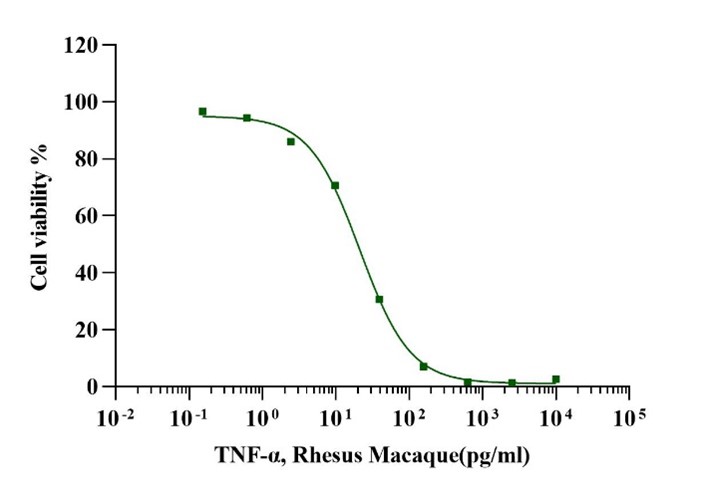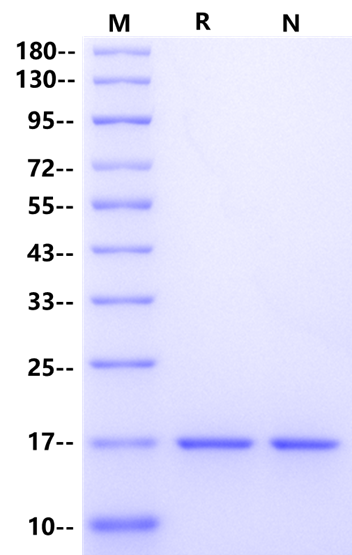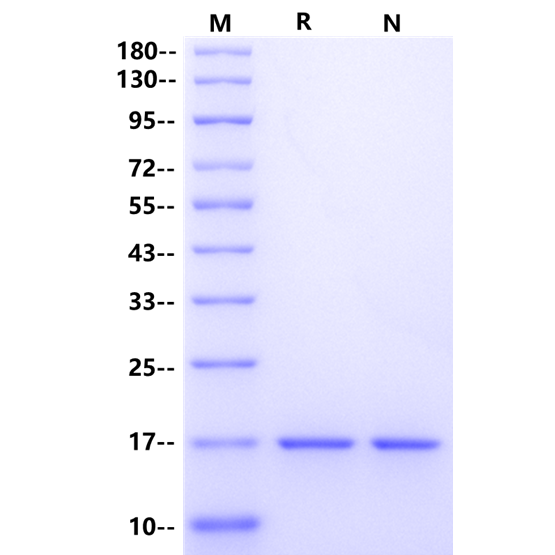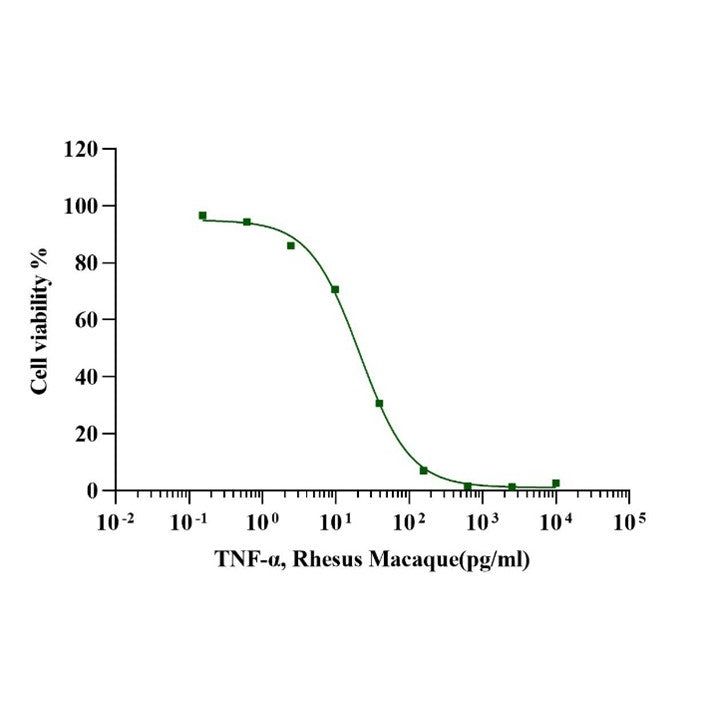Measured in a cell proliferation assay using L-929 mouse fibrosarcoma cells, the EC50 for this effect is less than 30pg/ml.
Product Details
Product Details
Product Specification
| Species | Rhesus macaque |
| Synonyms | TNF-alpha, Tumor Necrosis Factor, Cachectin, Tumor Necrosis Factor Ligand Superfamily Member 2, TNF-a, TNF, TNFA, TNFSF2 |
| Accession | P48094 |
| Amino Acid Sequence | Val77-Leu233 |
| Expression System | E.coli |
| Molecular Weight | 17.3kDa |
| Purity | >95% by SDS-PAGE |
| Endotoxin | <0.1EU/μg |
| Conjugation | Unconjugated |
| Tag | No Tag |
| Physical Appearance | Lyophilized Powder |
| Storage Buffer | PBS, 2mM TCEP, pH 7.4 |
| Reconstitution | Reconstitute at 0.1-1 mg/ml according to the size in ultrapure water after rapid centrifugation. |
| Stability & Storage | · 12 months from date of receipt, lyophilized powder stored at -20 to -80℃. · 3 months, -20 to -80℃ under sterile conditions after reconstitution. · 1 week, 2 to 8℃ under sterile conditions after reconstitution. · Please avoid repeated freeze-thaw cycles. |
| Reference | 1.Microsc Res Tech. 2000 Aug 1;50(3):184-95. |
Background
Tumour Necrosis Factor α (TNFα), is an inflammatory cytokine produced by macrophages/monocytes during acute inflammation and is responsible for a diverse range of signalling events within cells, leading to necrosis or apoptosis. The protein is also important for resistance to infection and cancers. In view of these facts, TNF-α has been recommended as an important target for discovering drugs for autoimmune and inflammatory diseases and cancer.
Picture
Picture
Bioactivity

SDS-PAGE

1μg (R: reducing condition, N: non-reducing condition).




